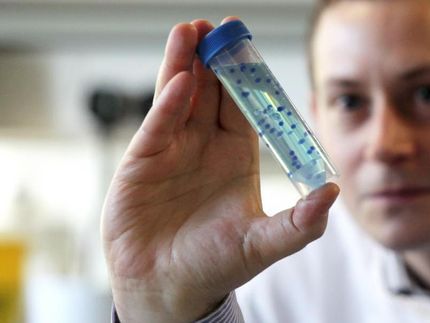Stem Cells Show Promise in Reducing Hardening of the Arteries
The medical world is excited about the potential that stem cells have demonstrated in aiding the recovery of patients who have suffered a heart attack. Now, a new study appearing in STEM CELLS Translational Medicine indicates that stem cells may also benefit those who suffer from hardening of the arteries.
Hardening of the arteries – or atherosclerosis – occurs due to a buildup of fats, cholesterol and other substances in and on the artery walls. The arteries become hardened by fibrous tissue and calcification and, as the plaque grows, it clogs the artery tubes, reducing the oxygen and blood supply to the affected organ. If the artery becomes severely blocked, it can cause death of the tissue fed by the artery and lead to a heart attack or stoke.
Based on the success of mesenchymal stem cells (MSCs) in treating a heart attack, Shih-Chieh Hung, M.D, Ph.D., of the Department of Medical Research, Taipei Veterans General Hospital, Taiwan, led a team of researchers who wanted to learn if MSCs transplanted in a patient in the early stage of atherosclerosis might prevent the disease’s development and/or progression. MSCs are stem cells that can be collected from many adult tissues and differentiate into various cell types, including cartilage, bone, tendons, muscle and skin.
The team began by examining the effects of MSCs on inhibiting atherosclerosis in human/mouse endothelial cells treated with oxidized low-density lipoprotein (oxLDL) in a lab dish. The endothelium is the thin layer of cells that lines the interior surface of blood vessels and lymphatic vessels, forming an interface between circulating blood and the rest of the vessel wall.
“Then we moved on to see how they might affect live mice that had been fed a high-fat diet,” Dr. Hung said. “We found that the MSCs transplantation improved endothelial function and reduced the plaque formation in the lab cells as well as in the high fat-diet fed mice. This leads us to believe that MSCs might prove useful someday in treating atherosclerosis in human patients,” he noted.
Dr. Hung said that the next step is to identify ways to maintain the beneficial effect of MSCs for a long time, as well as learn more about the complex mechanism underlying the MSCs transplantation in different stages of atherosclerosis.
“This study was aimed at intervening in the early stages of disease development to prevent further progression,” said Anthony Atala, M.D., editor of STEM CELLS Translational Medicine and director of the Wake Forest Institute for Regenerative Medicine. “It is the first study to show that in animals, stem cells can treat atherosclerosis by repairing the blood vessel lining.”
Original publication
“Mesenchymal Stem Cells Ameliorate Atherosclerotic Lesions Via Restoring Endothelial Function."; STEM CELLS Translational Medicine.
Most read news
Original publication
“Mesenchymal Stem Cells Ameliorate Atherosclerotic Lesions Via Restoring Endothelial Function."; STEM CELLS Translational Medicine.
Topics
Organizations
Other news from the department science

Get the life science industry in your inbox
By submitting this form you agree that LUMITOS AG will send you the newsletter(s) selected above by email. Your data will not be passed on to third parties. Your data will be stored and processed in accordance with our data protection regulations. LUMITOS may contact you by email for the purpose of advertising or market and opinion surveys. You can revoke your consent at any time without giving reasons to LUMITOS AG, Ernst-Augustin-Str. 2, 12489 Berlin, Germany or by e-mail at revoke@lumitos.com with effect for the future. In addition, each email contains a link to unsubscribe from the corresponding newsletter.




















































